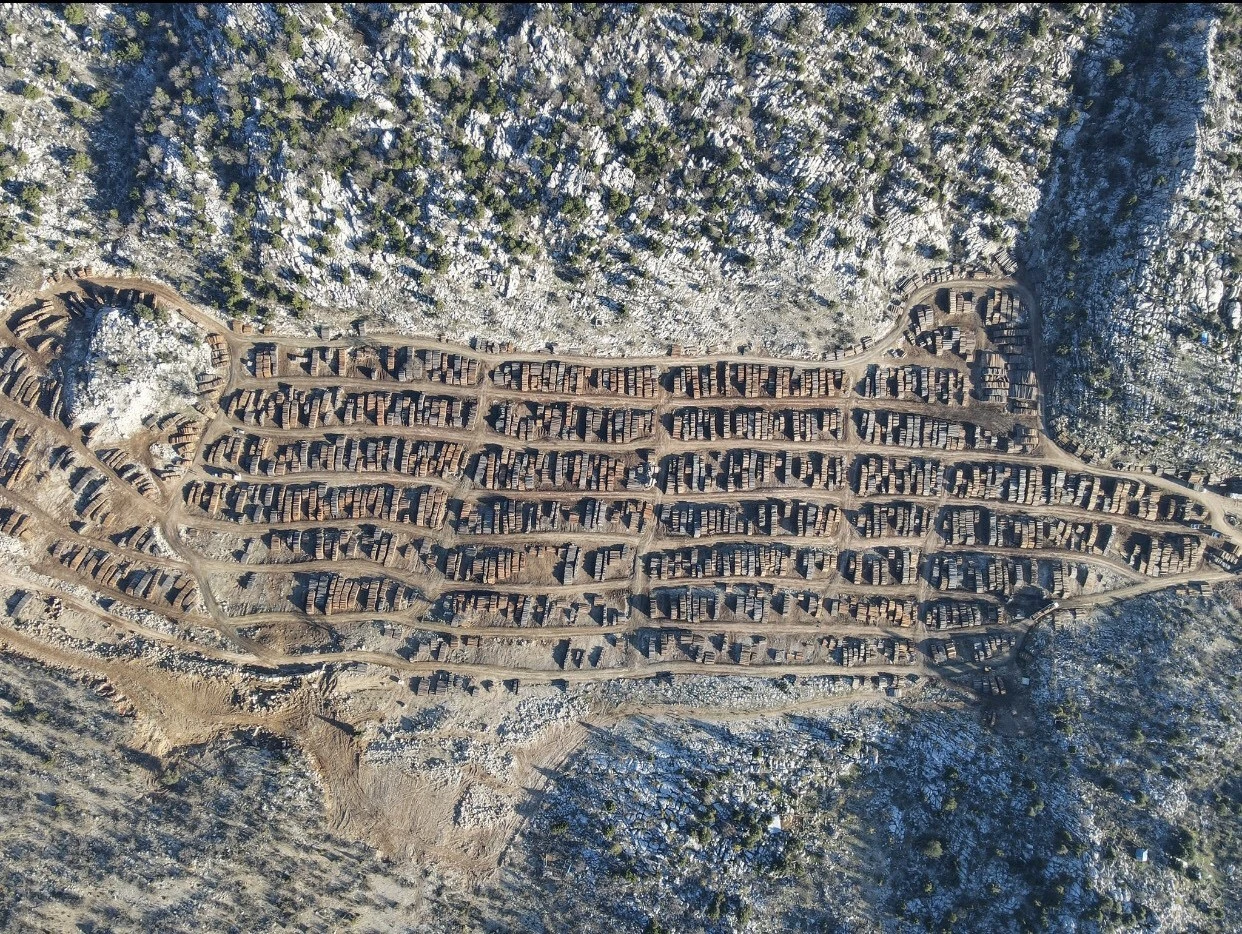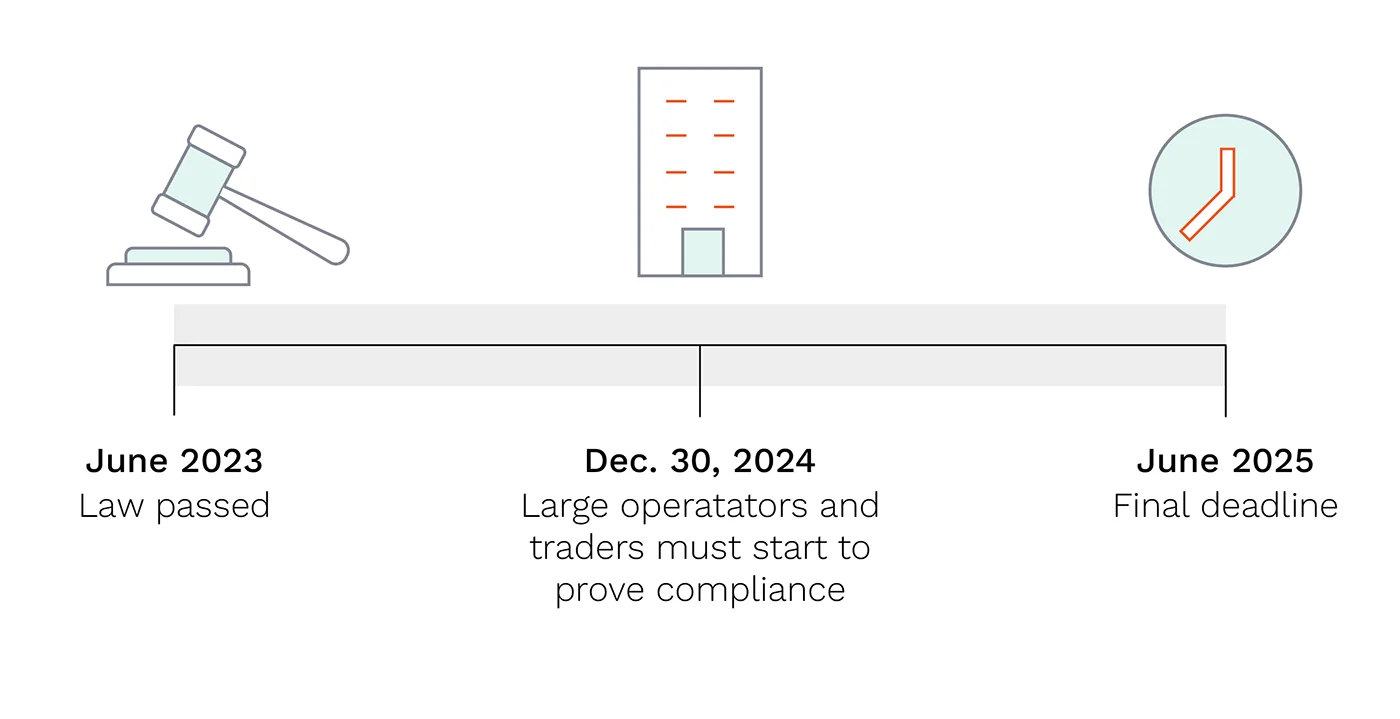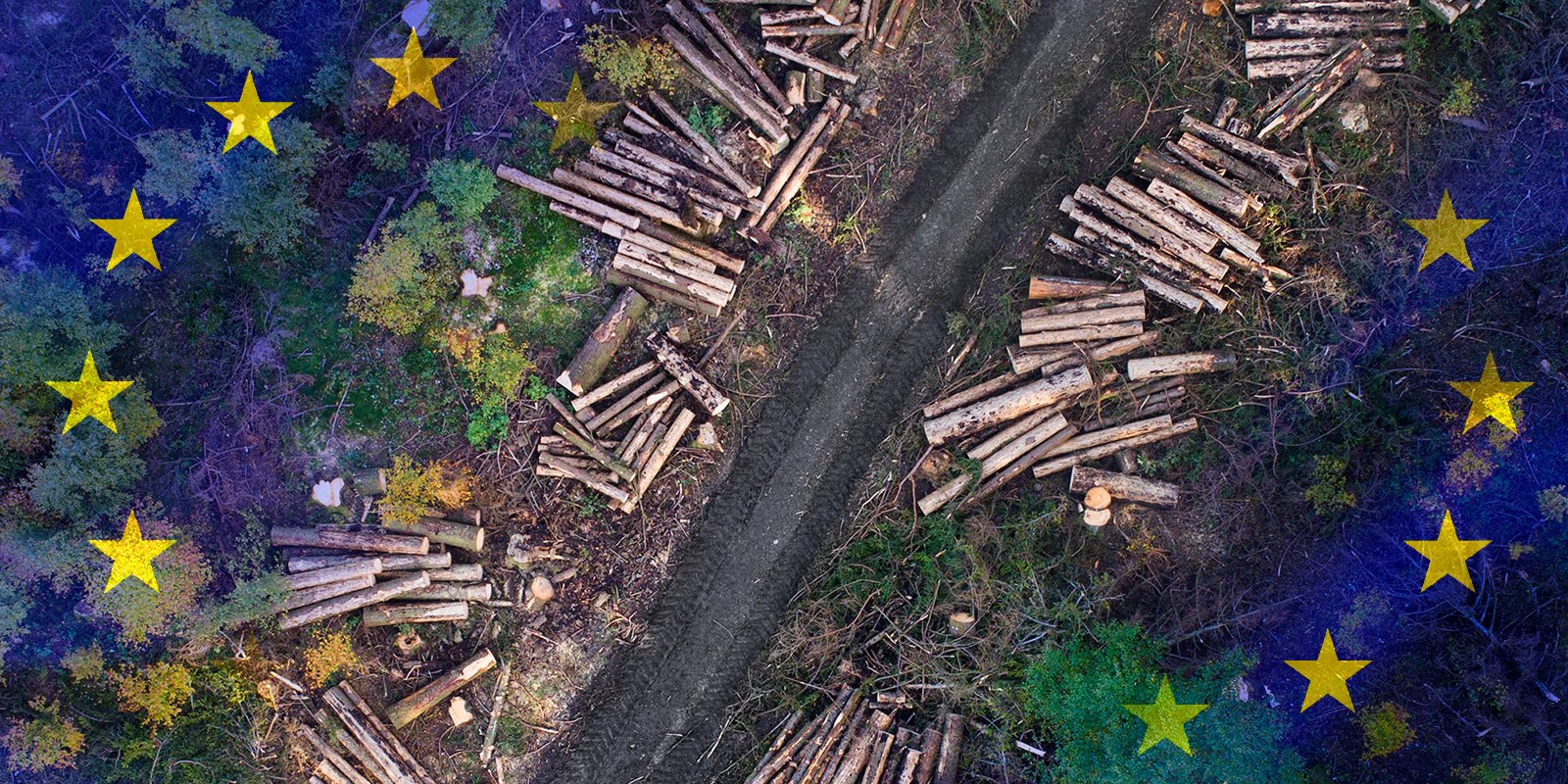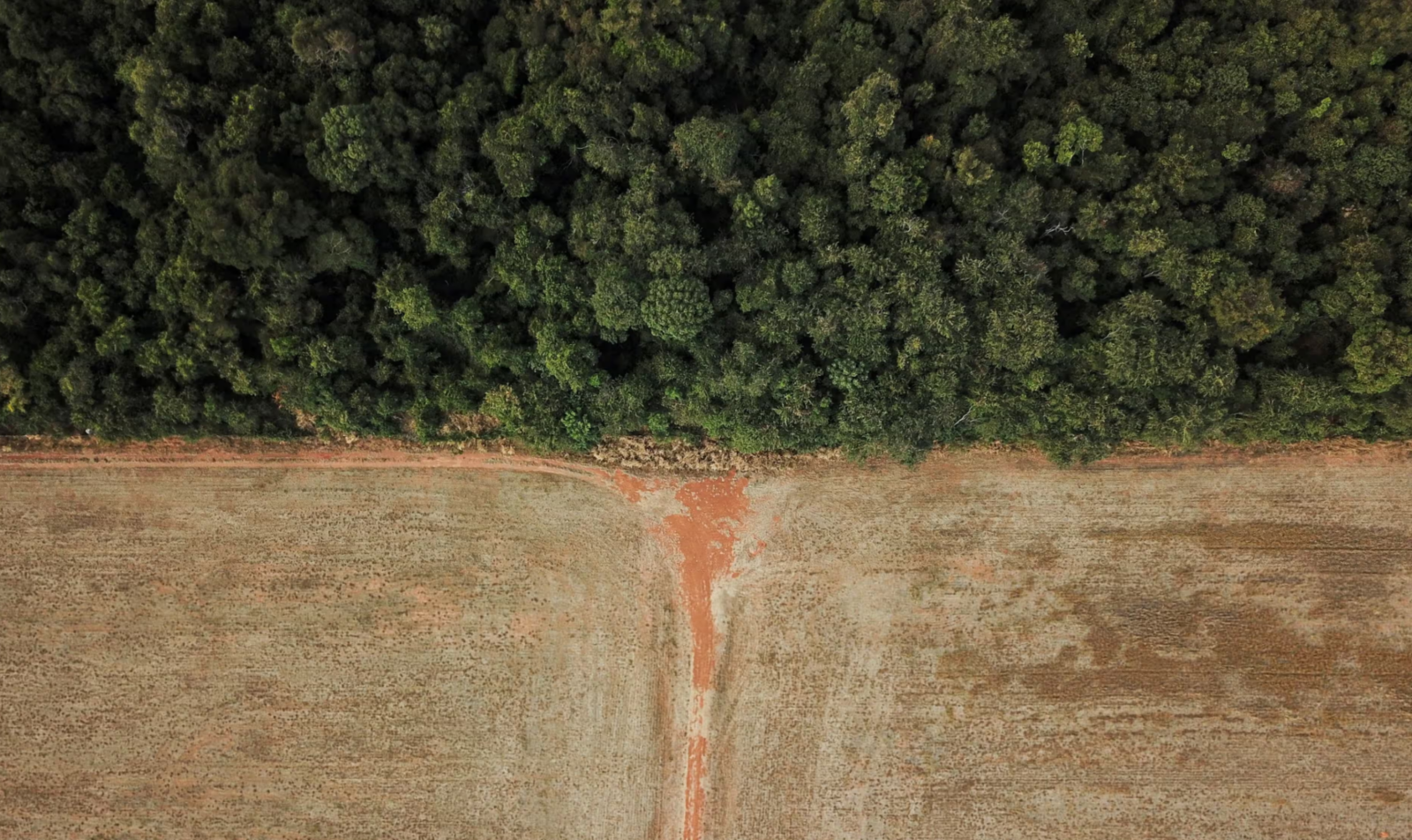EUDR delay confirmed after European Parliament vote on deforestation regulation
 Adana Regional Forest Directorate's industrial wood production, Türkiye, January 19, 2024 (IHA Photo)
Adana Regional Forest Directorate's industrial wood production, Türkiye, January 19, 2024 (IHA Photo)
The European Union’s plan to enforce the European Deforestation Regulation (EUDR) has been delayed by 12 months.
The European Parliament confirmed the delay following a vote that cleared the final hurdle to the approval of the postponement.
The delay provides third countries, EU member states, operators, and traders with additional time to prepare for the “due diligence obligations” mandated by the regulation, which aims to curb deforestation linked to the EU’s supply chains.

European Parliament votes in favor of delay
The vote, held on November 14, approved the proposal to push back the regulation’s implementation. A total of 371 Members of the European Parliament (MEPs) voted in favor of the delay, while 240 opposed it.
Thirty MEPs abstained from the vote. The decision was seen as a relief for many in the sector, including Copa-Cogeca, which welcomed the move on social media.
Compromise reached: No 2-year extension
A proposal to extend the delay by two years, presented by the European People’s Party, was not included in the final vote. Six of the 15 amendments tabled by the party were also removed from the bill. While a technical issue caused a brief delay in the voting process, the final vote was quickly concluded.
Following the vote, large businesses and operators will have until December 30, 2025, to fully comply with EUDR, while small and micro enterprises have until June 30, 2026. Although the delay has been agreed upon, the regulation has been in force since June 29, 2023, requiring traders to meet certain obligations related to deforestation risks.

Environmental groups react strongly
The delay has sparked criticism from environmental organizations. Charities have condemned the decision, calling it a “disaster” and accusing European authorities of allowing “environmental genocide” to continue.
One significant point of contention is the introduction of a new category for products from “no-risk” countries, where deforestation risk is deemed minimal.
‘No-risk’ loophole under scrutiny
Environmental group Earthsight has criticized the new ‘no-risk’ category, claiming that the criteria used to determine it are “arbitrary.”
They argue that this could create a loophole, allowing products from high-risk countries to be funneled through no-risk countries, undermining the regulation’s effectiveness.

EU’s efforts to end deforestation at risk
Julia Christian, a campaigner from the forests and rights NGO Fern, also expressed concern over the vote, claiming it undermines Europe’s efforts to eliminate deforestation from its supply chains.
“The amendments risk giving EU forested countries a free pass,” she said, referring to changes in deforestation risk ratings for some countries.
What’s next for EUDR?
As the delay takes effect, stakeholders will continue to closely monitor developments surrounding the EUDR to ensure that necessary adjustments are made to reduce bureaucratic burdens without compromising environmental goals.



